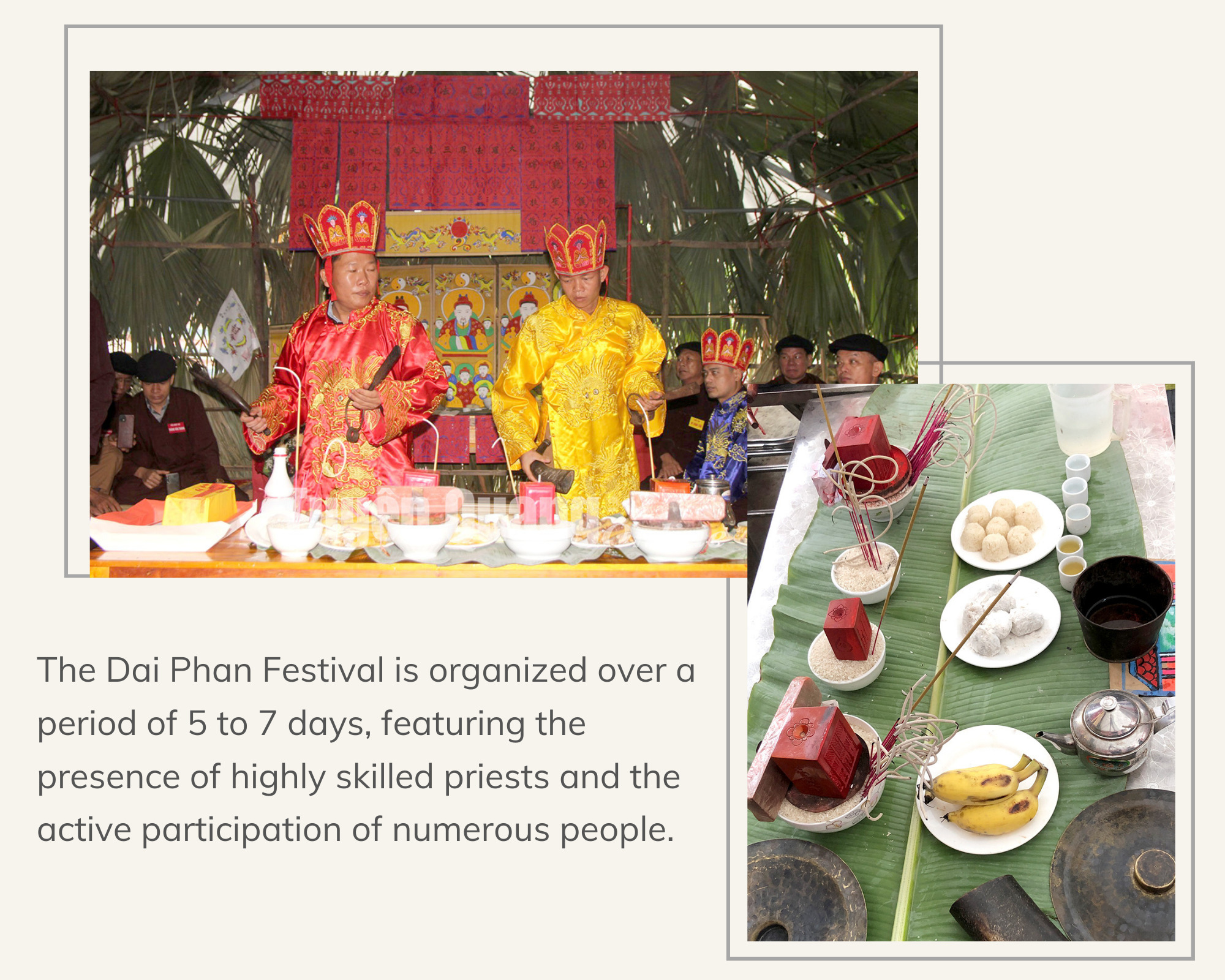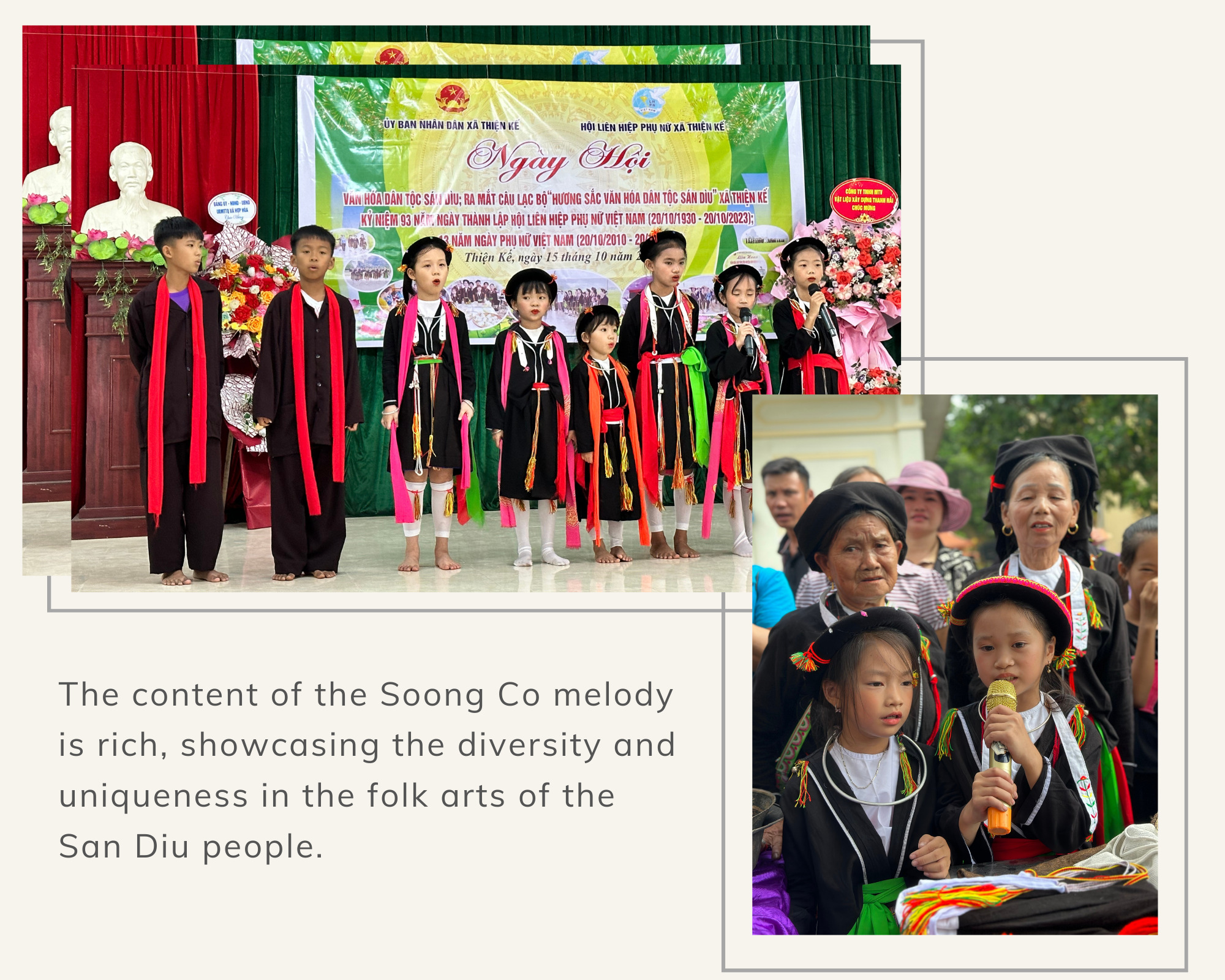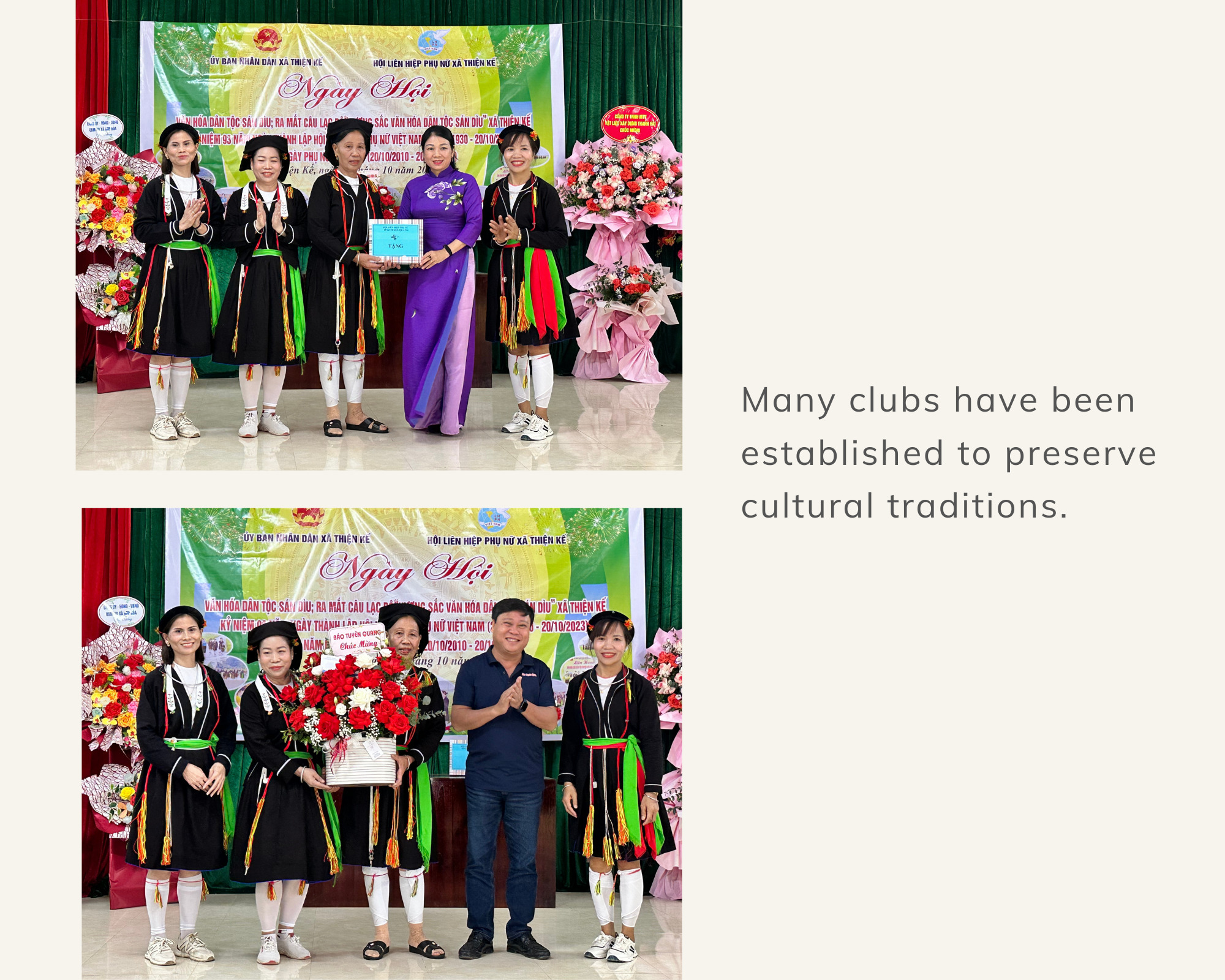Tuyen Quang is home to 15.000 San Diu people, mostly in communes of Ninh Lai, Thien Ke and Son Nam. They always proud of their long-standing traditional values that have been passed down through many generations.
.jpg)
Their biggest festival is Dai Phan festival. This includes a system of rituals such as god altar building ceremony, Nhac lau ritual, Nhap phuon ritual, Chem thao chieu ritual, Ngu dai thien Vuong chay dan, Leo guom ritual, Cap sac ritual, the ghost ritual, Soong Co singing, etc. In addition to Dai Phan, there are lots of festivals, including Thuong dien Ha dien, and other annual festival in the villages.

Amid the cultural interference in modern life and the introduction of many new cultural forms, the traditional cultural features of the San Diu ethnic group are affected. However, the San Diu people have still preserved many unique cultural activities, especially folk songs and folk dances. Among them is Soong Co singing. Like the Sli melody of the Nung people and the Sinh ca of the Cao Lan people, Soong Co is a lyrical folk song genre with male-female response lyrics.

The inspiration for those songs is the daily activities. Despite the ups and downs of time, those simple lyrics are always sung as if they have a strong vitality, and settle with time.

The cuisine of the San Diu ethnic people is not only a delicate combination of natural ingredients and cooking techniques but also a symbol of respect for nature and history. If Kinh people make 'troi' cake, the San Diu people create 'chay' cake. It looks similar to 'troi' cake but has no filling inside and no sugar outside. In addition, their indispensable black sticky rice during every Qingming festival is made from sticky rice and 'lau xau' vegetable (wild vegetable). 'Nep coc pho' cake is made from sticky rice and mung bean filling.
.jpg)
The San Diu language, which is the source of understanding and cohesion in the ethnic group, is preserved and transmitted through generations. There is a fusion of the three religions in the San Diu community, including Buddhism, Confucianism, and Taoism. They believe in the theory of reincarnation, the theory of cause and effect, and the theory of destiny of Buddhist teachings.
.jpg)
The San Diu ethnic people in Son Duong district are not only the preservers of traditional culture but also the ones who revive and develop the culture identities in a modern context. The combination of enthusiasm, rituals, cuisine and language preservation creates a strong and unique community that is gradually leaving its mark in the hearts of visitors and is a source of inspiration for future generations.

Comment
Print